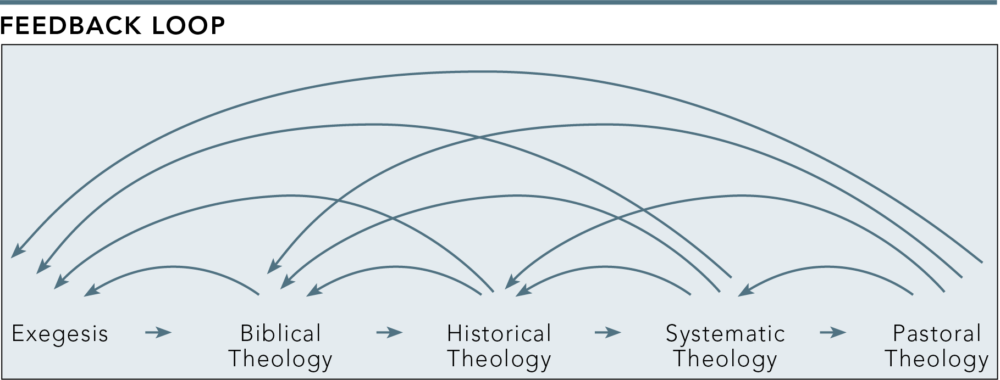The Biblical-Theological Overview of the Bible
Review of Article 1 by D. A. Carson
23 Mar 2024
DC Yang, SR Mang
Making sense of the Bible as a whole

Carson, The Bible and Theology in NIV Biblical Theology Study Bible (2018).
"pursue agendas that the text itself sets"
"careful reading"
Exegesis vs Biblical Theology
- Reminder that there is promise and fulfillment.
- Analysis vs synthesis.
- Exegesis controls BT, and BT influences exegesis.
Carson, The Bible and Theology in NIV Biblical Theology Study Bible (2018).
Biblical Theology
vs Systematic Theology
- BT: historical and organic.
ST: (relatively) ahistorical and universal. - BT: The text itself sets the agenda.
ST: Inquiry often starts from philosophical or scientific questions ("cultural engagement") which the biblical texts do not directly raise.
Carson, The Bible and Theology in NIV Biblical Theology Study Bible (2018).
The practice of BT
3 "faces" ≒ scopes
- Orient oneself to each book or group of books. Then identify distinctive theological emphases within.
- Start from a theme or a theological concept.
Then trace how they run through
the entire Bible. - Examine books (time-wise) immediately before and after the presentation of a given theme, keeping an eye on allusions.
... all the while keeping one eye focused on
the passage of time (καιρός)
in the history of redemption ("salvation history").
Salvation history
The history of events that focus on the salvation of human beings and issues involving the new heaven and the new earth.
-
Progressive revelation,
including what "salvation" means. - Concordance with extra-biblical sources.
- Divine intervention highlighted.
-
Backbone to which all parts of the Bible
are connected.
The shape of
salvation history
- Points of meaning:
creation, fall, redemption, consummation.- Many (repeatedly) different ways of falling
narrated through OT and NT.
- Many (repeatedly) different ways of falling
- Lines drawn toward the great turning point:
Jesus' birth, ministry, death,
resurrection, and ascension.
(failing)
The significance of
salvation history
- BT is grounded on an appropriate grasp
of salvation history. - Salvation history largely establishes the direction
in which the biblical narrative unfolds. - Historical events with themes (or patterns)
gradually point to the future
and become predictive (prophetic) voices. - "Typologies" are intertwined.
- Salvation history is the locus of the revelation of God.
Questions for discussion
- Why progressive?
What to make of the lives of people in biblical times
who'd heard far less about salvation than we have? - How does each of us personally define salvation?
Does it have dimensions other than
ending up in heaven after death? - What do the books Ruth, Esther, Daniel, and Nehemiah have to say about salvation?
- How did the authors of the Books of Kings and the Books of Chronicles determine and write the final evaluation (good/evil) of each king?
Was it obvious?
ABI Article 1 review
By ChangMo “David” Yang
ABI Article 1 review
Review of The Biblical-Theological Overview of the Bible by D.A. Carson
- 25



